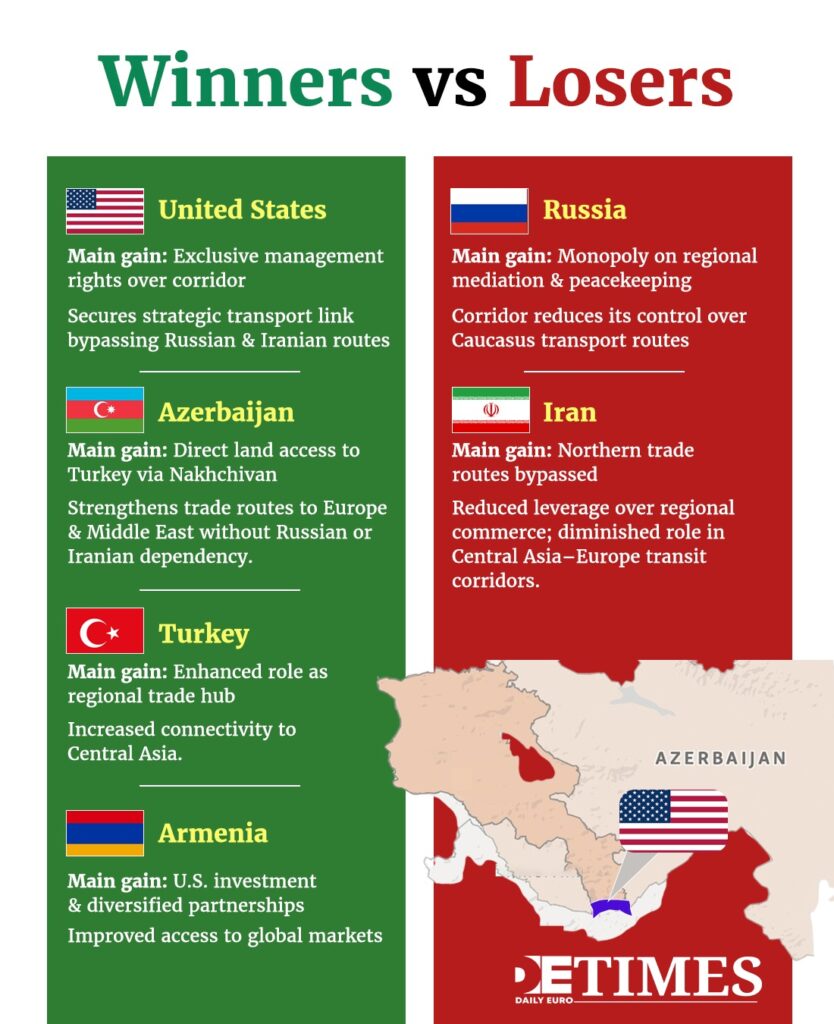Last week’s Caucasus breakthrough announces something historic. President Trump brokered a deal between Azerbaijan and Armenia that grants the United States exclusive rights to manage the contentious Zangezur corridor.
The agreement comes after decades of Russian mediation attempts. Washington has effectively sidelined both Moscow and Tehran from controlling this crucial trade route.
Why the Zangezur Corridor Matters
The corridor would connect Azerbaijan’s mainland with its Nakhchivan exclave through Armenian territory. For Baku, this creates direct land access to Turkey. More importantly, it opens new transport links between Asia, Europe and the Middle East.
Previously, goods between these regions had to travel through either Russian or Iranian territory. Now America controls an alternative route.
Regional Powers Left Behind
Moscow and Tehran view this development as a serious threat to their influence. Both countries had positioned themselves as indispensable mediators in South Caucasus disputes. Russia loses its monopoly on regional peacekeeping. Iran sees its northern trade routes bypassed.
Turkish officials, meanwhile, celebrate the prospect of enhanced connectivity with their Turkic partners. The corridor strengthens Ankara’s position as a regional hub.
Türkiye, however, benefits twice over. The route boosts trade flows and expands Turkish influence across Central Asia.
Economic Realities Drive Decisions
Armenia’s Prime Minister Nikol Pashinyan likely calculated that American backing offered better long-term prospects than continued Russian dependence. Yerevan seeks to diversify its international partnerships.
Armenia needs investment and development more than ideological alignment.
The deal also reflects Azerbaijan’s growing confidence. Baku has successfully pushed for corridor access despite Armenian resistance for years.

Critics Miss the Bigger Picture
Some analysts describe Armenia’s agreement as capitulation. Yerevan seemingly surrendered sovereignty over strategic territory. However, such views ignore economic realities. Armenia gains access to international markets through American partnership.
The alternative would have been continued isolation under Russian influence. Washington offers better development prospects than Moscow currently can.
Furthermore, exclusive American management means neutral oversight rather than partisan control. This serves Armenian interests better than either Russian or Iranian alternatives.
What Comes Next?
The corridor’s activation will test regional relationships further. Iran and Russia must now find new ways to maintain influence in the South Caucasus. Both powers retain other strategic assets in the region. But their traditional dominance is clearly waning.
Europe should welcome this development as it reduces dependence on problematic Russian energy routes. The corridor offers additional supply chain options.
Looking eastward, Central Asian states now have improved access to Mediterranean ports through Turkish territory. This breaks their historical reliance on Russian transport networks.
Regional partnerships are being rewritten. The question now is whether Russia and Iran can adapt to their diminished roles or will they resort to disruptive tactics to maintain relevance.
Keep up with Daily Euro Times for more updates!
Read also:
A Tug of War: Türkiye and its Rivals in Syria
EU Accession: Armenia Takes a Leap of Faith
The New Middle East: A Region In Flux






